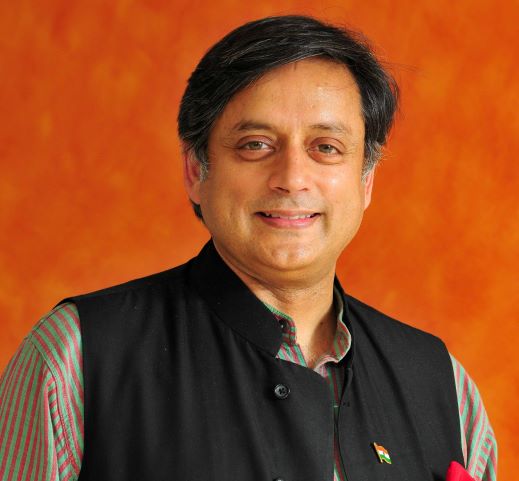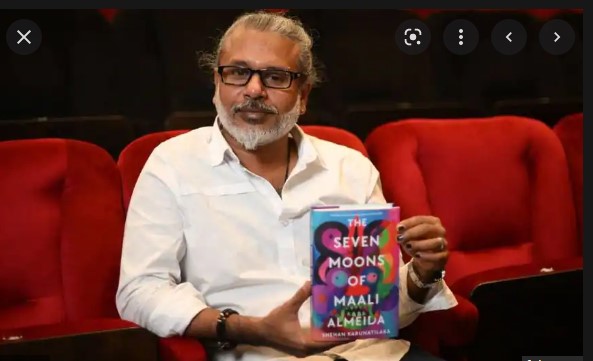By Sugeeswara Senadhira/Ceylon Today
Colombo, October 24: While feeling good with fellow Sri Lankans about the winning of the Man Booker Prize by Shehan Karunatilaka last week, I reflected on watching a brilliant conversation between Shehan Karunatilaka and Shashi Tharoor 10 years ago in New Delhi. Both of them are in news as the day Shehan won the coveted award in London, Shashi was a contestant for the top post of Congress Party, which he lost to Mallikarjun Kharge.
Shehan Karunatilaka’s conversation with Shashi Tharoor took place in New Delhi after the then young Sri Lankan writer’s debut novel “Chinaman: The Legend of Pradeep Mathew” was awarded the DSC Prize of USD 50,000 at Jaipur few days earlier. Shehan was awarded the Commonwealth Prize as well.
Former United Nations Assistant Secretary Tharoor admitted he was a cricket buff like Karunatilaka and both of them could recall every match they had seen. Tharoor too has written scores of top selling books. Hence, he was an excellent choice to interview Karunatilaka out of his reticence and get him to speak about himself and his work with candour, humour and pride. I felt privileged to be in the audience and it was a treat to hear them debate, spar, argue and thrust. Indeed it was a memorable occasion. While listening to Karunatilaka and Tharoor, the entire audience was absolutely convinced that here were two of the most brilliant new South Asian voices.
Tharoor opinioned that Sri Lanka has produced some great fictions but most writers have chosen a grand, large canvas to paint on. This means that they have written of post-colonial cultural themes, ethnic strife and sad, tragic lives caught in the crossfire between competing cultural and religious legacies. Karunatilaka, on the other hand, has written ‘Chinaman’ almost like a detective novel with focus on cricket.
As there is a renewed interest in cricket, it is not appropriate to recall the characters of Chinaman. The central character is an alcoholic, cricket-mad writer on the trail of a legendary bowler who mysteriously disappeared after a sensational performance. The author has used cricket to bring out all that is great and sick about Sri Lanka: a lush, verdant tropical paradise dragged into a civil war that nearly destroyed it. When its cricket team resurrected the lost self-esteem of this nation in 1996 World Cup victory, it provided Karunatilaka with the perfect metaphor to explore layers beneath the drunken ravings of a dying man who wants to discover what happened to a bowler who no one has been able to forget.

As Ira Pande, Stanley Carvalho and Professor Harish Trivedi, who also interviewed Karunatilaka stated, it is not as if cricket is the only subject in Chinaman, although it is at the centre of it. Beneath its surface is the unstated rivalry of the Tamil and Sinhalese population, corrupt match-fixers and dodgy punters, a British ex-pat accused of paedophilia and a prodigal son. Dense, lyrical and tragic by turns, it is a ‘sixer’ by any standard, the two critics said.
Professor Harish Trivedi, who was Chairman of the International Jury that had selected Chinaman for DSC Prize of USD 50,000 acknowledged that he was not a ‘sports freak and cricket moves me not’. Of the other four members of the Jury, one was an American (and therefore unaware of cricket at all), while the British jury member was, like Trivedi‘an odd Englishman who never watched cricket.’
Despite the fact that three out of the five members on that jury were cricket-averse readers, “Chinaman” was our unanimous choice.
Karunatilaka proved that despite the crises in Sri Lanka and the people’s struggle, there is an abundance of material for writers and there are compelling voices across literary genres. Ira Pande said, the writers are blessed because there’s plenty to tell and lots to learn and it could well be rewarding as in the case of Karunatilaka. From being longlisted to getting shortlisted among the final six, he went on to win the Booker Prize, she pointed out.
Stanley Carvalho interviewed Shehan Karunatilaka once again after the latter was awarded The Man Booker award for his second book, The Seven Moons of Maali Almeida. Carvalho asked Karunatilaka if he screamed in delight on hearing that he was longlisted for the Booker and, Karunatilaka said, “I was walking my five-year-old to class while my wife sat in a petrol queue when I got the news. My hope for ‘Seven Moons’ is that in the not too distant future….it is read in a Sri Lanka that has understood that these ideas of corruption, race baiting and cronyism have not worked and will never work.”
This year’s shortlist of Booker Prize contenders included some accomplished writers from across the world. Ultimately, Karunatilaka’s book trumped all. As the judges chair, Neil MacGregor said: “This is a metaphysical thriller, an afterlife noir that dissolves the boundaries not just of different genres, but of life and death, body and spirit, east and west. The reader also discovers the tenderness and beauty, the love and loyalty, and the pursuit of an ideal that justify every human life.”
END




























































